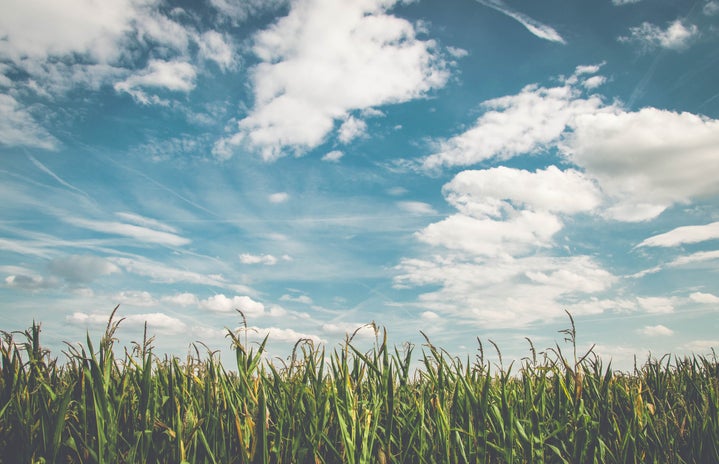What It Means
To live sustainably means to live in a way where we are cautious of all forms of life around us. It means making choices and taking actions that will maintain the Earth’s resources rather than depleting them. Humans, animals and plants are all forms of life that share the same environment and resources. However, as human beings, we treat ourselves as master possessors of nature, and act as though the Earth only exists for our use. We take and we take, without any care for other living things or future generations. This mindset is extremely wasteful, selfish and simply unsustainable. In this article, I will outline a few ways that we can make better choices to ensure we are living sustainably and doing our part to care for the planet.
How Can We Live Sustainably?
We can all live a more sustainable life by making small lifestyle changes involving resource consumption, energy consumption, diet and transportation. Here are a few simple ways:
Stop using plastic
Plastic is non-degradable. That means it can never be fully broken down. Plastic breaks apart into small pieces but never fully degrades into the soil like paper does. It gets left behind in soil, slowly making the soil toxic which affects all living things whose food grows from soil. Moreover, many animals such as sea birds, sea turtles and seals are killed by ingesting or getting entangled in plastic. We can reduce the use of plastic by stopping the use of single-use plastic items such as plastic bags, straws, and plastic food containers such as plastic plates and cups. Instead, opt for reusable shopping bags, reusable straws, and reusable dishes. Keep metal straws and reusable bags in your car handy for when you need them!

Saving energy and using renewable resources
Saving energy is one of the best ways to reduce our carbon footprint. With summer coming up, there are countless ways to conserve energy. We can save energy by making use of daylight and turning off the lights when they’re not needed. When doing laundry during the summer months, we can hang-dry our clothes and make use of the sunny weather instead of using the dryer. When traveling short distances we can bike, ride or walk instead of using a motor vehicle.

Paying attention to the brands you buy from
When we think of our carbon footprint, we tend to blame all humans collectively. However, some contribute to damaging the Earth more than others. We need to hold large corporations accountable. We cannot attempt to control our own carbon footprint while funding corporations who are doing the exact opposite. For that reason, we must pay attention to the brands we buy from. Many companies act like they are ‘green’, but do this only as a marketing strategy. We need to be mindful and do our own research to ensure that the companies we are buying from are ethical. Do you really want to be giving your money to a brand that is damaging the environment?

Producing less waste
We can attempt to produce less waste by taking only what we need and leaving resources for others to use. For example, when grocery shopping, buy produce that you will use up, so that the rest doesn’t go to waste. Also, buy things when required, not on impulse. Instead of buying single-use products, look for multi-use or multi-purpose items so that they can be reused. We can recycle materials such as plastic so that they can be redesigned into another item. Once items can no longer be reused, make sure to dispose of them properly. Check the type of plastic classification to ensure it is recycled properly.

The problem(s)
Sustainability started with good intentions, but slowly it has become repurposed into having a not so positive purpose. It is taken advantage of, and used as a marketing strategy for companies to gain more customers. In addition, the phrase ‘living sustainably’ has become so repetitive that it has lost its meaning. The word ‘sustainable’ is sometimes ‘in-style,’ then it is thrown away like a fashion trend. When it’s ‘in’, people follow it, but when the trend dies down, it’s neglected. The reason that the trend dies down in the first place is because living sustainably can seem discouraging. Many of us think that one small effort will not have any impact. So we decide not to do anything at all because we assume that it wouldn’t matter. Imagine if one thousand people had this same thought and decided not to do anything. Now imagine that this same group of one thousand people chose to do something small to help the environment. The accumulation of many small efforts has the power to make a significant impact.

Living sustainably can sound funny. We all die anyway, right? But it is not only about us, it is also about the future generations. Look at it this way. It is about our nieces and nephews, our kids, grandkids, their kids, their grandkids and all of the future generations to come. Living sustainably simply means maintaining the Earth’s resources for these future generations. As a society, we need to make wise choices and take actions that will prolong the health and life of the planet. Protecting the environment is one of the most important causes to contribute to because we all live on this planet and we need to make sure we are sustaining it so that it can sustain us. As the Indigenous proverb goes, “we do not inherit the earth from our ancestors, we borrow it from our children.”



